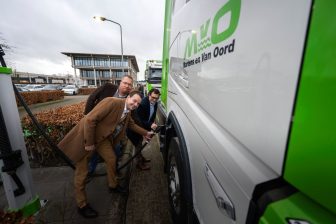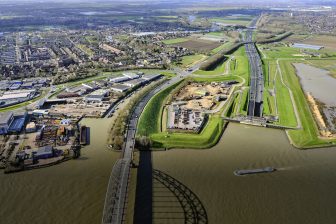Malawi: World Bank supports 40mln dollar Infra Project
Malawi: World Bank Supports US$40 Million Infrastructure Services Project Press Release No:2006/500/AFR
Washington, United States of America – The World Bank Board of Directors 2006-06-27 approved an International Development Association (IDA) grant of US$40 million for an Infrastructure Services Project in support of Malawi’s Economic Growth Strategy (MDGS).
The project will support Malawi Government efforts to strengthen economic growth and improve its distributional impact by providing coordinated infrastructure services necessary for expanding social and economic activities outside the country’s major cities. The coordinated infrastructure services will cover one or more of the following sectors – electricity, telecommunications, water and sanitation, and roads.
The project will provide core infrastructure services in about thirty market centers located within five economic corridors along the country’s main road system. These corridors, which span the country’s three geographical regions, are:
- 1. Rumphi-Nyika-Chitipa (northern region)
- 2. Ntcheu-Tsangano-Mwanza (central/southern region)
- 3. Mangochi-Cape Maclear (southern region)
- 4. Zomba-Phalombe-Mulanje (southern region)
- 5. Bangula-Tengani – Nsanje- Makoko (southern region)
The choice of the five corridors to participate in the project hinged primarily on their significant potential for economic growth in three priority areas of the MDGS – agro-business, mining, and tourism. The selection of the market centers within these corridors took place in consultation with the relevant District Assemblies.
The key concept underlying the project is that the lack of one or more essential infrastructure services (water, electricity and telecommunications) limits business opportunities outside of agriculture. It also constrains social and public institutions, such as clinics and schools, from delivering the full range of services necessary to meet the objectives of Government programs for health and education.
The project will also assist the Government of Malawi in developing a coordinated approach to planning and implementing infrastructure development in these areas.
“This project is testing an innovative approach to infrastructure services provision. A suite of water, roads, electricity, and telecommunications provides a platform for competitive economic activity and provision of social services,” says Constantine Chikosi, the World Bank’s Acting Country Manager for Malawi.
The project’s main focus will be the removal of infrastructure barriers to small and medium-scale business development. The project will also identify non-infrastructural barriers, such as the lack of financing, which need attention from other sources of donor assistance. The proposed project will not cover large infrastructure such as electricity services for mines and other large enterprises that may develop in the corridors away from the market centers.
“However, the potential development of these larger businesses in the selected economic corridors has played a role in the selection of the project areas because of the additional infrastructure that market centers near these large projects may require to take advantage of increased business opportunities,” explains Paivi Koljonen, the World Bank Task Team Leader of the project.
The project will also provide institutional strengthening and capacity building to the various governmental agencies and the private sector engaged in infrastructure service delivery. Of particular importance is the project’s support to the district authorities in each of the economic growth corridors who will be key partners in project implementation.
The project is likely to directly affect about 160,000 people living in the targeted market centers. In addition, the feeder roads that the project will construct are likely to have an even larger impact, bringing the market centers within closer access of people living in the hinterlands.
For more information, please visit on the World Bank’s work in sub-Saharan Africa www.worldbank.org/afr
For more information on the World Bank’s work in Malawi visit web.worldbank.org/WBSITE/EXTERNAL/COUNTRIES/AFRICAEXT/MALAWIEXTN/0,,menuPK:355878~pagePK:141159~piPK:141110~theSitePK:355870,00.html
U las zojuist één van de gratis premium artikelen
Onbeperkt lezen? Profiteer nu van de introductieaanbieding voor € 10,- per maand.
Bent u al abonnee?



